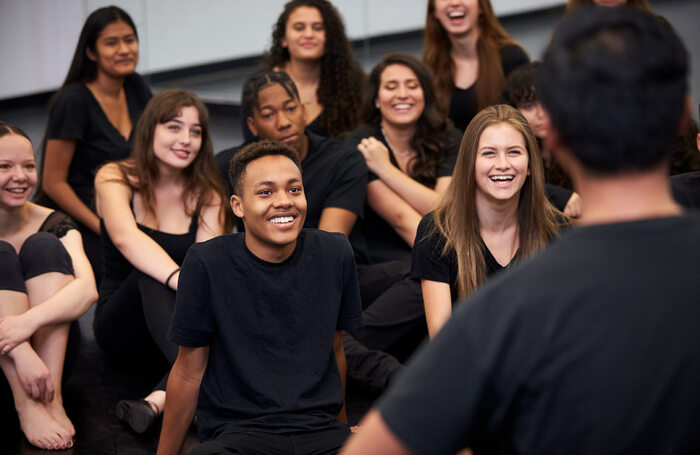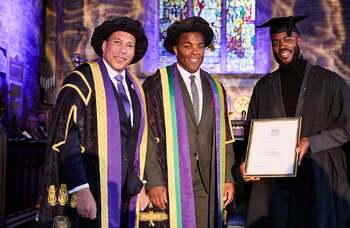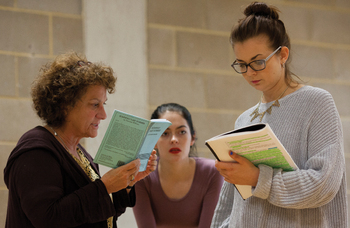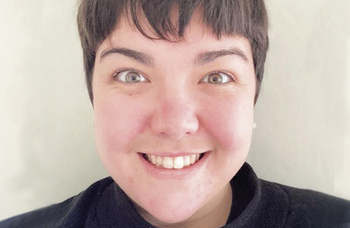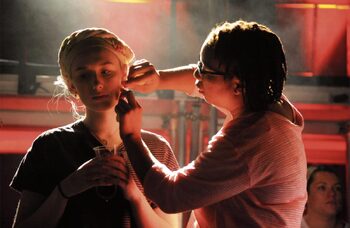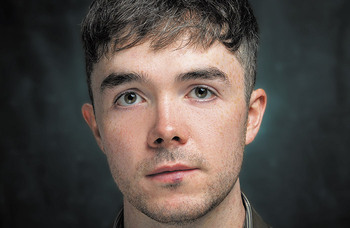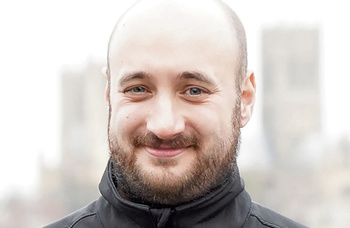Quality assurance: how can you tell if a drama course is up to the grade?
The landscape of drama school accreditation has changed significantly, particularly with the demise of Drama UK. But with so many courses to pick from, it can be confusing for prospective students to choose between institutions. Giverny Masso talks to some of the industry’s key players to help you navigate the process and make the right training choices for you
Anyone wanting to train on a drama-related course has a multitude of options to choose from. On UCAS, there are more than 50 institutions offering a variety of acting courses (excluding programmes that are more academic). There are further drama schools not listed on UCAS with their own application process. With so many courses to pick from, how can prospective students be assured of their quality? And how are these courses and institutions being accredited?
In the current landscape, accreditation is patchy. There is no single body that fully oversees the accreditation of all drama schools or vocational performing arts courses. There are also differing opinions on whether current systems are sufficient, or if there needs to be better quality indicators.
Drama training accreditation has a chequered history. In 2012, two organisations providing accreditation – the Conference of Drama Schools and the National Council for Drama Training – merged to form a single accreditation body called Drama UK.
‘[LAMDA] is required to conform to the Office for Students’ multiple conditions of registration, which include a range of factors such as quality of provision, continuation rates, progression, financial sustainability, etc’ – LAMDA principal and chief executive Mark O’Thomas
In 2016, it was announced that Drama UK was to close, after several high-profile member schools quit the organisation. In a statement at the time, Drama UK said that “significant changes in higher-education funding” meant its role as an accreditation body was “no longer required or sustainable”. Trustee Pauline Tambling added that drama schools that were independent in 2000, with no state funding, were now funded through the higher-education funding system, meaning they “get their accreditation and quality assurance via the state system and no longer need any accreditation from the industry”.
In 2017, a new membership body called the Federation of Drama Schools launched as a “partial replacement” to Drama UK. It has 17 partner schools, with the FDS stating on its website that these have a “track record of producing graduates with long-term careers [and] providing professional training with recognisable identity”.
In 2018, the Council for Dance Education and Training relaunched as CDMT and took on accreditation and advocacy roles previously carried out by Drama UK. The organisation’s role differs from Drama UK in that it offers independent accreditation for drama institutions rather than courses, and it also offers validation for organisations that award qualifications, such as Trinity College London.
Membership of CDMT is voluntary, and it has 26 member schools. The inspection process for accredited schools involves the submission of a self-evaluation document and a visit by industry consultants.
A CDMT spokesman said: “The professional courses delivered by CDMT-accredited schools offer exceptional levels of training by highly experienced practitioners, underpinned by studio work, face-to-face sessions in group and individual classes, and performance rehearsals totalling over 30 contact hours per week.”
However, there are many leading drama schools that are not members, including RADA and LAMDA.
LAMDA’s principal and chief executive Mark O’Thomas explains that the drama school has its own degree awarding powers, and, like any university, is registered with the Office for Students, which is an independent public body that regulates higher education in England.
‘[The industry needs to] re-establish what elite training is. I think we’ve lost that. We now get into a sort of factory training, and I think that’s to the detriment of the industry, and indeed, to the students’ – Former MTA principal Annemarie Lewis Thomas
“As such, [LAMDA] is required to conform to the Office for Students’ multiple conditions of registration, which include a range of factors such as quality of provision, continuation rates, progression, financial sustainability, etc,” O’Thomas says.
The drama school is also a member of Conservatoires UK, which acts as a voice for 11 UK conservatoires, the FDS, and higher education body GuildHE.
“However, none of these bodies are accrediting organisations and act more as mission groups,” O’Thomas adds.
He argues that prospective students looking to get assurance on the quality of courses should look at rankings and tables such as the Guardian University Guide and the National Student Survey and visit schools on open days.
However, others argue that it can be confusing for students to choose between institutions, and claim that the current system for accreditation is unsatisfactory.
Former MTA principal Annemarie Lewis Thomas explains that there are two ways for drama training institutions to access funding: “either via the degree route, which the vast majority have decided to go down, or by… going down the diploma route and trying to get validated, as opposed to accredited, by Trinity College London”.
She argues that CDMT is effectively “just a member organisation that does some check-ins” and that there needs to be an overall regulator for drama schools to ascertain that the right standards are being met.
“It’s very much every school does its own thing… The degree route isn’t necessarily fit for purpose. Because everybody’s chased that government funding stream, it shoehorns our training into a model that wasn’t designed for it.”
Continues...

Thomas also argues that drama schools are under pressure to keep expanding in order to remain financially viable, because “degree funding just does not pay for the level of contact time that a student needs to properly train”.
She says courses are expanding the number of students they are taking and shaving down contact hours. As a result, Thomas argues, smaller colleges are getting “squeezed out”.
Indeed the MTA closed in 2022 after “game-changing” validation that the school thought it was likely to get from Trinity College London – and subsequent funding as a result – was not secured in the time frame it needed to survive. The school first revealed financial difficulties in 2021.
Thomas argues that Trinity College London is a “gatekeeper” to funding streams for vocational performing arts colleges. She has been involved in a lengthy, ongoing dispute criticising Trinity’s validation process with the MTA.
Trinity College London has 22 course providers offering Professional Performing Arts Diplomas in the UK, and states that in the year 2022/23, 1,728 candidates were enrolled with a UK course provider and 569 candidates graduated with a Professional Performing Arts Diploma.
‘If you’ve got, say, 17 schools everyone thinks are providing the right training, and you say, ‘you’ve got to get into one of those to be a professional actor’, [there must be] adequate progression pathways for students of working-class families or diverse ethnicities to get every chance to get in’ – Hilary Strong, director of Making Theatre Gaining Skills
In response to Thomas’ comments, Trinity College London claims the MTA was “not achieving [the] standards” necessary to have its course validated. The MTA was seeking validation for a two-year diploma, which is run over three years by all other Trinity College London course providers.
It claims it “instigated a review of the validation process by an independent expert”, which was reportedly shared with the MTA in September 2022 and allegedly upheld the “integrity and diligence of [its] validation processes”.
Thomas also argues that the industry needs to “re-establish what elite training is”.
“I think we’ve lost that. We now get into a sort of factory training, and I think that’s to the detriment of the industry, and indeed, to the students,” she adds.
“We’re in an oversaturated industry, and we’re churning more and more people out, and more and more of those people are substandard.”
This view is echoed by Hilary Strong, who was director of the National Council for Drama Training from 2007 to 2010 and is now director of theatre training organisation Making Theatre Gaining Skills. Strong references the large number of acting courses run by universities, as opposed to specialist drama schools, and argues that students on these courses have “limited” chances of “getting really good work” as actors.
She questions whether the industry wants an “unlimited market for students to study acting” and “who decides how many actors [need] to be trained” and argues that increasing the availability of acting courses actually limits rather than improves access for working-class students.
“If you’ve got, say, 17 schools which everyone thinks are providing the right kind of training, and you say, ‘you’ve got to get into one of those in order to be a professional actor’, then you [need to] make sure there are adequate progression pathways for students of working-class families or diverse ethnicities to make sure they get every chance possible to get into those drama schools,” Strong says.
“But if you say, ‘don’t worry about going there, you can go to [a university acting course]’, then actually, what are the chances of those people from diverse communities actually having a career in the business? None.”
Strong argues that the FDS – which did not respond to The Stage’s requests for comment – is “the best method we have” currently for recognising quality of drama schools because it has a set of standards that its members agree on.
‘I’m interested in students going to schools with a proven track record of success, along with current evidence these schools are consistently producing graduates who become working actors, technicians and production design artists’ – Actor David Mumeni, who runs Open Door
Actor David Mumeni, who runs drama schools audition organisation Open Door, however, argues that it would be useful to have a body responsible for accrediting all drama schools. “With so many new things popping up that say they’re drama schools, I think it’s important to have quality marks because there’s quite confusing messaging for young actors,” he tells The Stage.
He argues that it is important for the industry to define “what we call a drama school” and says training – as opposed to classes – should involve a holistic journey for students.
In terms of selecting partner schools for Open Door, Mumeni says: “I’m interested in students going to schools with a proven track record of success, along with current evidence that these schools are consistently producing graduates who become working actors, technicians and production design artists.” Mumeni adds it is also important that the drama schools Open Door works with have robust safeguarding policies in place.
Unless and until a more holistic approach to accreditation is introduced, his advice to aspiring drama school students is: start by looking within the FDS and then consider whether the work recent alumni of the schools are undertaking tallies with your own aspirations.
Opinion
Recommended for you
Advice
Recommended for you
Most Read
Across The Stage this weekYour subscription helps ensure our journalism can continue
Invest in The Stage today with a subscription starting at just £7.99
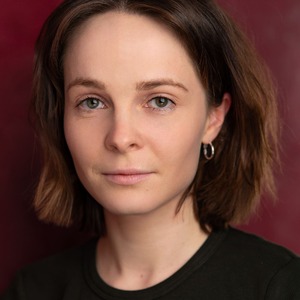 Giverny Masso
Giverny Masso